
Tatjana Barbakoff
The daughter of a Chinese mother and a Russian Jewish father, Tatjana Barbakoff used her mixed heritage as inspiration for stunning and innovative dance performances. Her expressive technique entranced critics, while her costumes inspired dozens of painters and sculptors to capture her likeness. In 1944, she was killed in Auschwitz.

Barbara (Monique Andree Serf)
Barbara (Monique Andrée Serf) was a French singer and composer whose melancholy style rose to national significance. Born in Paris in 1930, after World War II Barbara studied music, rising to fame in the 1960s. Her Jewish identity and wartime experience as a child influenced her non-conformist persona as an artist, and through her song lyrics, she advocated for Franco-German reconciliation.
Lizzie Spiegel Barbe
Lizzie Spiegel Barbe, a member of a prominent Chicago family, devoted more than fifty years of her life to being a clubwoman and leader within the Chicago Jewish community. Like other “Jewish Clubwomen” of this era, Barbe was motivated to establish leadership roles for women that had previous not existed within the organized Jewish community.
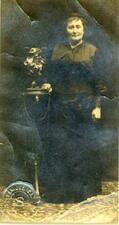
Lena Barber
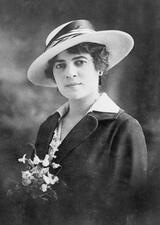
Clarice Baright
Hannah Barnett-Trager
Hannah Barnett-Trager’s involvement in the literary world began when she helped found and then worked as a librarian at the Jewish Free Reading Room in London. She published her first article in 1919 and went on to write books for both children and adults. Trager’s writing discussed Jewish culture and politics, often drawing from her own experiences.

Devorah Baron
Devorah Baron is one of the few Hebrew women prose writers in the first half of the twentieth century to gain critical acclaim in her lifetime. She wrote primarily about Jewish women’s lives, focusing on the challenges women faced in a society that did not value them equally. Her work was in dialogue with European writers, including Chekhov and Flaubert, and with Hebrew modernist writer S. Y. Agnon.
Sadi Muriel Baron
A pioneering neurologist and psychiatrist, Sadi Muriel Baron managed to interweave teaching, working with poor urban families, and running a successful private practice. Baron was also the mother of Dr. Renée Richards, who became one of the most famous American transgender personalities after her transition in 1976.
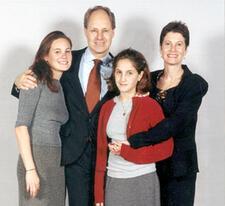
Patricia Barr

Barren Women in the Bible
The Hebrew Bible tells six stories of barren women: three of the four matriarchs (Sarah, Rebekah, and Rachel); the unnamed wife of Manoah/mother of Samson; Hannah, the mother of the prophet Samuel; and the Shunnamite woman, an acolyte of the prophet Elisha. Each woman suffers a period of infertility, in some cases exacerbated by the presence of a fertile, though less beloved, rival wife. Eventually, God intervenes and the woman conceives, but the beloved son is then dedicated back to God, either in service or in sacrifice.
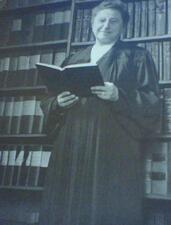
Jennie Loitman Barron

Charlene Barshefsky
Evangelyn Barsky
One of the first two women allowed to pass the bar in Delaware, Evangelyn Barsky made a great impact on her community in her brief career.

Belle Barth
Singing her way through popular standards and performing imitations of Sophie Tucker, Al Jolson, Harry Richman, and Gypsy Rose Lee kept Barth employed on the vaudeville circuit through the 1930s and 1940s. The character of her act changed in the 1950s, when she began to mix her two talents—music and comedy—and added a splash of “red hot mama” for good measure.
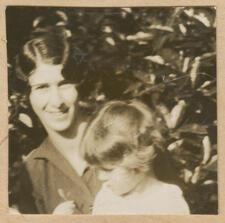
Dorothy Walter Baruch
Psychologist Dorothy Walter Baruch championed the health development of children as an educator, author, psychologist, and as a community leader. Her psychodynamic approach to child development focused on the relationship between physical, emotional, and intellectual development and on rechanneling children’s feelings through play and art therapy.

Sarah Bas Tovim
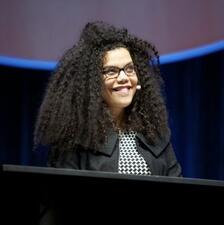
April Baskin
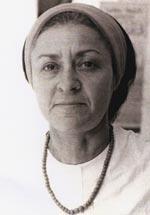
Rivka Basman Ben-Hayim
Born in Wilkomir, Lithuania, in 1925, the much-awarded Rivka Basman began writing poetry at an early age. She composed poetry during the Holocaust, and continued to publish books of lyrical poetry long after. Only late in life did she directly address her experiences during the Holocaust.
Matilde Bassani Finzi
Matilde Bassani Finzi was an active Italian anti-fascist who relentlessly fought the injustices of Mussolini and the Nazis. She continuously worked towards the ideals in which she believed: freedom, democracy, and equality for women.

Michal Bat-Adam
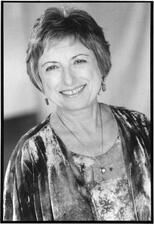
Ora Bat Chaim
Ora Bat Chaim is a poet, painter, and concert manager who in her late 50s began a prolific music composition career. Bat Chaim was the manager of the Zavit Theater and composed over 400 pieces for musicians, plays, and movie soundtracks. Her music can be described as a reflection of Jewish mysticism, yoga, and universal principles of truthfulness, compassion, and tolerance.
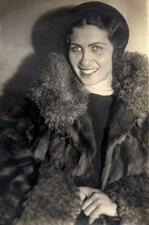
Shulamit Bat-Dori
Shulamit Bat-Dori defied notions about the inappropriateness of theater in the kibbutz, creating popular and acclaimed plays for the masses. Bat-Dori joined Ha-Shomer ha-Za’ir and made Aliyah in 1923, bringing her passion for theater, dance, music, and languages to Kibbutz B (later Mishmar ha-Emek). She wrote plays and founded the Kibbutz theater.
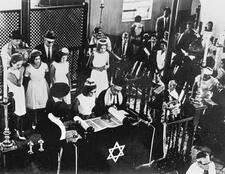
Bat Mitzvah: American Jewish Women
When Judith Kaplan Eisenstein became the first American girl to mark her bat mitzvah on March 18, 1922—two years after women were guaranteed the right to vote in the US—she recalled “shock[ing] a lot of people,” especially her disapproving grandmothers. Today, American girls across the Jewish spectrum, from secular to ultra-Orthodox, mark their coming-of-age in various forms.

Yokheved Bat-Miriam (Zhelezhniak)
Yokheved Bat-Miriam was part of a group of pioneering Hebrew women poets in the 1920s. Her poetry commemorates the religious and emotional lives of Jewish women and frequently focuses on women of the Bible who composed and/or recited poetry.
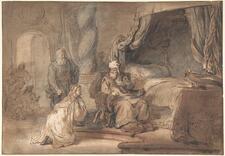
Bathsheba: Bible
Bathsheba is the married woman whom King David takes in adultery and who, though initially passive, becomes the pivotal figure in his downfall. The king has Bathsheba’s husband, Uriah, slain in battle and then takes her as a wife. While her first child, conceived in adultery, dies, the second, Solomon, becomes heir to the throne as a consequence of Bathsheba’s maneuverings.


